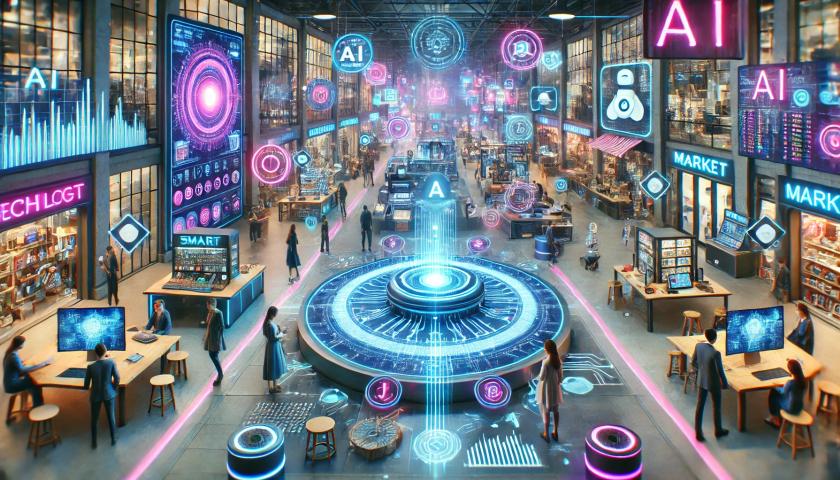In the digital age, artificial intelligence (AI) is transforming every aspect of human life—from how we work and communicate to how we shop and receive medical care. As this technological revolution continues, there is a surging demand for professionals who understand the science and application of AI. This demand has led to the emergence and rapid expansion of Artificial Intelligence degree programs across universities worldwide.
What Is an Artificial Intelligence Degree?
An Artificial Intelligence degree is an academic program that focuses on the development and application of intelligent machines capable of performing tasks that typically require human intelligence. These tasks include speech recognition, decision-making, visual perception, language translation, and more. Depending on the level and focus, such programs can be standalone bachelor's, master's, or doctoral degrees, or specializations within broader fields like computer science, data science, or robotics.
AI degrees combine theoretical knowledge with practical skills. Students learn how to design, build, and deploy AI systems while gaining an understanding of the ethical, social, and economic implications of artificial intelligence technologies.
Why Pursue an AI Degree?
The importance of an AI degree stems from the growing impact of AI across various industries:
Career Opportunities: AI graduates are in high demand in fields such as healthcare, finance, automotive, retail, cybersecurity, and entertainment. Roles such as AI engineers, machine learning scientists, data scientists, and robotics engineers are among the fastest-growing jobs globally.
Interdisciplinary Knowledge: AI degrees often involve coursework in mathematics, computer science, cognitive science, neuroscience, ethics, and more. This interdisciplinary approach prepares students for diverse challenges.
Innovation and Impact: AI professionals are at the forefront of innovation, working on technologies that can solve global issues such as climate change, disease diagnosis, and resource optimization.
Curriculum Overview
While course offerings may vary by institution, most AI degree programs include a blend of foundational and advanced subjects. Here's a typical breakdown:
1. Mathematics and Statistics
Linear Algebra
Calculus
Probability and Statistics
Optimization Methods
2. Computer Science Fundamentals
Programming (Python, Java, C++)
Data Structures and Algorithms
Operating Systems
3. Core AI Subjects
Machine Learning
Deep Learning
Natural Language Processing (NLP)
Computer Vision
Reinforcement Learning
4. Specialized and Advanced Topics
Explainable AI
AI Ethics and Policy
AI in Healthcare
Autonomous Systems
Human-Computer Interaction (HCI)
5. Capstone Projects and Research
Most programs culminate in a hands-on project or thesis, allowing students to apply what they’ve learned to real-world problems. This may involve creating a machine learning model, developing a robotics system, or analyzing AI’s social impact.
Online vs. On-Campus AI Degrees
With the rise of remote learning, many universities now offer online AI degrees or hybrid options. These are ideal for working professionals or students unable to relocate. Platforms like Coursera, edX, and Udacity also offer micro-degrees and certifications in partnership with top institutions.
However, traditional on-campus programs provide in-person mentorship, access to research labs, and networking opportunities that can be critical for launching a career in AI.
Career Opportunities and Salaries
Graduates with an AI degree are well-positioned for a range of high-paying, high-growth careers. Common roles include:
AI Engineer: Designs and implements AI models and algorithms.
Machine Learning Engineer: Focuses on developing self-learning systems.
Data Scientist: Extracts insights from data using machine learning techniques.
Robotics Engineer: Designs robots that use AI to perform tasks.
AI Researcher: Works in academia or industry to advance AI theory and applications.
Salary Expectations
AI-related roles offer competitive salaries. According to data from the U.S. Bureau of Labor Statistics and Glassdoor (as of 2024):
AI Engineer: $120,000 – $160,000/year
Machine Learning Engineer: $110,000 – $150,000/year
Data Scientist: $100,000 – $140,000/year
Research Scientist in AI: $130,000 – $180,000/year
Salaries can vary significantly based on location, experience, education, and industry.
Global Universities Offering AI Degrees
Many leading institutions have launched dedicated AI programs. Notable examples include:
Massachusetts Institute of Technology (MIT) – USA
Stanford University – USA
University of Oxford – UK
Tsinghua University – China
University of Toronto – Canada
ETH Zurich – Switzerland
These programs often collaborate with tech giants like Google, IBM, and Microsoft, offering students opportunities for internships, research, and employment.
Challenges and Considerations
While the prospects are promising, pursuing an AI degree is not without challenges:
Rigorous Curriculum: The subject matter is complex, requiring strong mathematical and analytical skills.
Rapid Technological Change: AI is evolving fast. Students must be committed to continuous learning.
Ethical Dilemmas: Students must grapple with important questions about AI’s role in surveillance, job displacement, and fairness.
Additionally, the cost of education—especially at top-tier universities—can be a barrier, although scholarships, grants, and online alternatives can alleviate this.
The Future of AI Education
AI education is evolving to meet the needs of industry and society. Emerging trends include:
Integration with Other Disciplines: AI is increasingly being taught alongside business, healthcare, law, and the arts.
Ethics-Focused Curricula: Programs are emphasizing responsible AI design to ensure technologies serve humanity equitably.
AI for Social Good: Universities are promoting projects aimed at using AI to address societal challenges like poverty, education inequality, and climate change.
As automation and AI continue to reshape the job market, the value of formal education in AI will only increase. Lifelong learning, through degrees, certifications, or self-study, will be essential for anyone looking to remain competitive in the AI-driven economy.
Conclusion
An Artificial Intelligence degree is more than just a ticket to a high-paying job—it’s an entry point into one of the most transformative fields of the 21st century. With applications spanning healthcare, finance, education, transportation, and beyond, AI offers immense potential to improve lives and solve complex global problems. Whether you are a recent high school graduate, a working professional, or a lifelong learner, pursuing an AI degree could be your most strategic and impactful educational choice in today’s tech-centric world.














